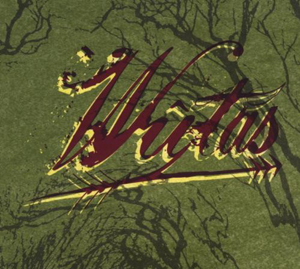 “Wûtas” (pronounced “wuotas”) is an Alemannic word denoting the Wild Hunt. (Alemannic is either a group of discrete languages or a group of dialects, depending on which school of linguistics is your favorite, spoken mainly in southern Germany, Austria, parts of Switzerland and France, and a few other places of less interest here.) It is also the name of a group formed in 2008 with the avowed intention of performing medieval music, which seems to be a going concern in the German-speaking world. However, Wûtas (the group) also evidenced a love of folk music and a tendency to get a little experimental, as well as a fondness for themes from myth and legend. The result, as presented on their eponymous debut album, can perhaps best be described as “medieval pagan folk rock.”
“Wûtas” (pronounced “wuotas”) is an Alemannic word denoting the Wild Hunt. (Alemannic is either a group of discrete languages or a group of dialects, depending on which school of linguistics is your favorite, spoken mainly in southern Germany, Austria, parts of Switzerland and France, and a few other places of less interest here.) It is also the name of a group formed in 2008 with the avowed intention of performing medieval music, which seems to be a going concern in the German-speaking world. However, Wûtas (the group) also evidenced a love of folk music and a tendency to get a little experimental, as well as a fondness for themes from myth and legend. The result, as presented on their eponymous debut album, can perhaps best be described as “medieval pagan folk rock.”
The various threads of inspiration are evident from the first couple of selections on this collection, “Aiolos” and “Marsyas,” both from Greek mythology, the first a brief introduction composed of deep, wordless voices accompanied by bagpipes, the second a rather wild instrumental giving vivid life to the story of the satyr Marsyas, who made the mistake of holding himself up as a musician the equal of Apollo.
Of particular interest are two pieces drawn from Irish myth, the first, “Cu Chulainn,” with a text taken from the Táin Bó Cúailnge on the hero Cu Chulainn and how he was named. It begins, fittingly enough, with a dog howling, and if you don’t know the reference, you need to brush up on your Old Irish. There is a distinctly Celtic lilt to the pipes in this one, while the vocal sections are brief and to the point. The second Irish piece, “Diarmuid agus Grainne,” is an instrumental rendering of the story of the ill-fated lovers, and a tremendously evocative piece of music. The band is joined by Antonia Dusa Wernig on uillean pipes on this one, which adds to the vivid images the music calls up.
Pointing up just how varied the selections are in this collection are another couple that caught my fancy. “Totentanz” is just that, a little melancholy, becoming almost stately, a medieval funeral march in modern harmonies. The other one is a wonderful French drinking song, “Tourdion,” which takes a while to get warmed up, but it certainly sounds like everyone is having a really good time.
These are just a few numbers that stuck out in a collection marked by superb performances and a quality of liveliness that suits the material perfectly. There doesn’t seem to be a lot of concern with “authenticity” here — the instruments are characteristic of the medieval period — bagpipes, shawm, bombard, flutes — but the music itself doesn’t care to stick to any particular period but seems rather to mold itself to the needs of the content quite nicely.
(Curzweyhl/Rough Trade, 2009)
